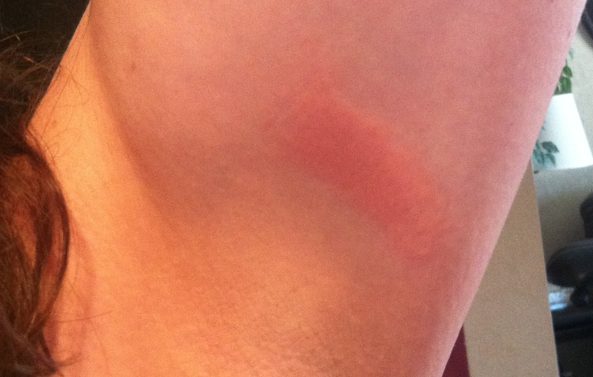 Eczema has been described as a chronic, relapsing, red and itchy rash on the skin.”There are a number of different manifestations of eczema,” says Dr. Adam Mamelak, board-certified dermatologist in Austin, Texas. “These are often described by what they look like or their morphology, or by their cause.”
Eczema has been described as a chronic, relapsing, red and itchy rash on the skin.”There are a number of different manifestations of eczema,” says Dr. Adam Mamelak, board-certified dermatologist in Austin, Texas. “These are often described by what they look like or their morphology, or by their cause.”
“Individuals with eczema have intense inflammation in the skin,” explains Dr. Miriam Hanson, board-certified dermatologist at Sanova Dermatology. “Most of our treatments are designed to calm and protect the skin, as well as decrease inflammation.” Anything that stimulate or irritate the immune system in the skin should be avoided.
It’s So Irritating
“In general, two types of things can stimulate the skin’s immune cells and cause eczema flares: irritants and allergens,” says Dr. Mamelak. Irritants are chemicals or compounds that induce inflammation in the skin when they come in direct contact with it. “These can be things like scratchy wool sweaters, or clothing that rubs and chafes causing the skin to become red and irritated.” Commonly included here are soaps that over dry the skin, astringents and alcohol-based lotions, perfumes, cosmetics, detergents and solvents. Dust and cigarette smoke have also been shown to irritate skin conditions.
Prolonged exposure is often necessary to produce irritant contact dermatitis. And just because you react to one irritant, does not mean you will react to all of them. In patients with eczema, finding your trigger is key to managing your disease.
Allergic Skin Disease
Allergens are defined as substances that induce allergic reactions in the skin. “Some of the most common causes are nickel, latex and rubber, as well as topical antibiotics like neosporin and bacitracin,” says Dr. Hanson. “Direct contact with these substances, even for brief periods of time can cause skin reactions and definitely make your underlying eczema worse.” Patch testing, a procedure performed in the dermatology clinic, is an effective way of identifying allergens that might be aggravating your skin.
Many of these allergens are organic substances derived from animals, plants and foods. “Pollen, mold, dust mites and animal dander are the agents that are often considered,” noted Dr. Hanson. “In these cases, it may not only be skin contact. Inhaling these substances might also produce inflammation and worsen your eczema.”
Food allergies is a controversial area, and their effect on the skin and eczema is not clear cut. The most common allergy-causing foods are eggs, fish, peanuts, tree nuts, milk and soy. Because diet is so important for growth and development, it is recommended that patients consult a physician before restricting any specific foods from their diet.
Contact Us
If you are having difficulty getting your eczema under control, please contact us today.
Join Us
